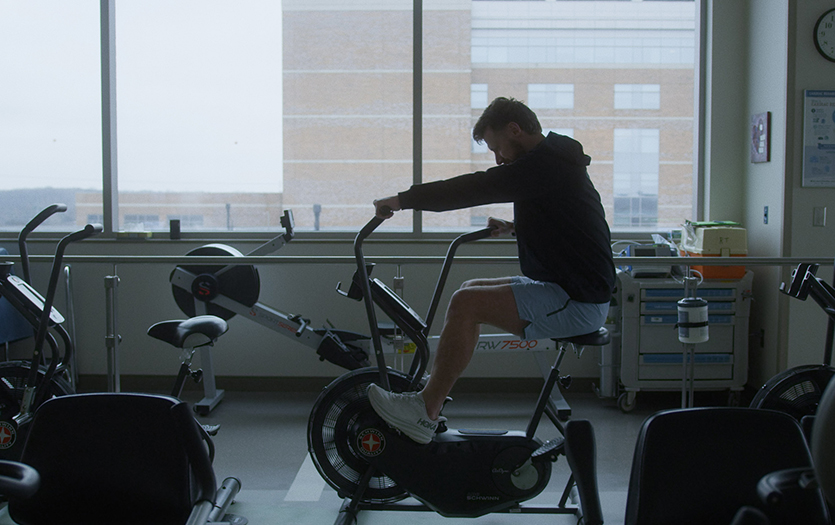In the United States someone has a stroke every 40 seconds. Stroke is the fourth leading cause of death – after heart disease, cancer and chronic respiratory disease. It is also the leading cause of disability. You can reduce your risk of having a stroke by learning to recognize warning signs, becoming aware of your personal risk factors and improving daily habits for a healthier lifestyle.
A stroke is a lack of adequate blood supply to the brain, caused by a clot (ischemic stroke) or bleeding (hemorrhagic stroke). Brain tissue dies within four minutes after a stroke begins. Stroke is a medical emergency. If you or someone you know shows symptoms of a stroke, it’s critical that you immediately call 911 so that treatment can begin as soon as possible.
Quick action preserves brain cells. Some treatments can only be successful in minimizing damage to the brain if they begin within a few brief hours after stroke symptoms appear. The sooner you seek medical care, the better your chances for a successful recovery.
Stroke signs and symptoms
Being able to recognize the symptoms of a stroke is critical. BE FAST is a simple tool to help you learn and remember stroke symptoms so you know when to seek medical attention for yourself or someone else.
Remember the phrase “BE FAST” and call 911 if you notice any of these symptoms of stroke:
- Balance: Loss of balance, loss of coordination or severe dizziness
- Eyes: Change in vision in one or both eyes
- Face: Uneven or drooping smile, numbness of face
- Arm (or leg): Weakness, numbness, paralysis - especially on one side of the body
- Speech: Slurred speech, difficulty talking or understanding
- Time: Call 911 right away
Make sure your family members, co-workers and friends know about BE FAST, too. The more people who know the significance of BE FAST in cases of stroke, the more lives that can be saved – and the fewer people who may have to cope with lifelong disability.
Causes
What causes a stroke depends on the type of stroke.
There are two types of stroke:
- An ischemic stroke is caused by a blood clot that blocks blood flow to the brain. A blood clot can form in an artery that supplies blood to the brain. Or a blood clot can form in another part of the body (often the heart) and travel through the bloodstream to the brain. Ischemic strokes are the most common type of stroke.
- A hemorrhagic stroke is caused by bleeding in or around the brain. It happens when an artery in the brain leaks or bursts. Hemorrhagic strokes are less common than ischemic strokes.
Risk factors
A risk factor is anything that makes you more likely to have a particular health problem.
Risk factors for stroke that you can manage or change include:
- Health problems like atrial fibrillation, diabetes, high blood pressure, high cholesterol, hardening of the arteries (atherosclerosis), and sickle cell disease.
- Smoking.
- Drinking more than 2 alcoholic drinks a day for men and 1 drink a day for women.
- Being overweight.
- Not eating healthy foods.
- Not getting enough physical activity.
Risk factors you can't change include:
- Having a previous stroke.
- Family history of stroke.
- Being older.
- Being African American, Alaskan Native, Native American, or South Asian American.
- Being female.
- Having certain problems during pregnancy, such as preeclampsia.
- Being past menopause.
Your doctor can help you know your risk. Then you and your doctor can talk about whether to take steps to lower it.
Treatment
For an ischemic stroke, you may get a clot-dissolving medicine called tissue plasminogen activator (TPA). You may get other medicines to prevent blood clots. A procedure may be done to remove the clot and restore blood flow.
For a hemorrhagic stroke, you may get medicine or a transfusion with parts of blood. This can stop the bleeding in the brain. You may have surgery or a procedure to repair an aneurysm or relieve pressure on the brain. You may get medicines to control blood pressure, brain swelling, and other problems.
After either kind of stroke, treatment shifts to preventing future strokes and to your recovery. A stroke rehabilitation program can help you recover and learn ways to adapt to changes caused by a stroke. Medicine and a heart-healthy lifestyle can help prevent another stroke. Your doctor will help you manage other conditions that put you at risk for another stroke.
Stanley Wissman Stroke Center
The Parkview stroke center excels in stroke treatment and prevention by combining:
- Outstanding medical expertise, including interventional procedures and surgical treatments
- Interdisciplinary teamwork
- Patient and family-focused care
- Advanced medical technology
- Participation in national stroke research
- Community health education
About Stanley Wissman Stroke Center
Recovering from a stroke?
Follow-up care after a hospital stay is provided by a neurologist or neuro-interventionalist within the Parkview Neurosciences practice on the Parkview Regional Medical Center campus.
To schedule, call 260-425-6780.





